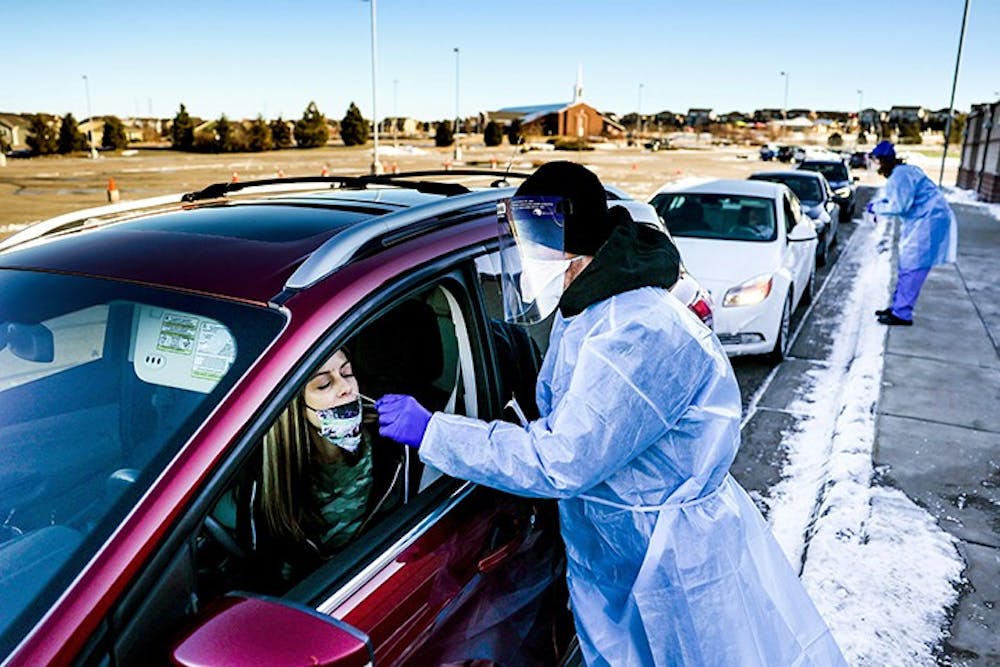USC will soon be able to detect coronavirus variants on campus through sequencer tests on saliva samples collected during COVID-19 testing.
South Carolina became the first state in the U.S. where the South African variant was detected when two cases were reported publicly on Jan. 28. The presence of the U.K. variant was reported on Jan. 30, making South Carolina the first state with both variants of COVID-19.
Carolyn Banister, clinical assistant professor in the College of Pharmacy, said the technology, which uses MiSeq sequencers, has been used for prior research at USC.
"Looking for mutations in people's tumors has been something that has been going on at our university for quite some time. And we're taking that technology now and using it to be able to detect variants in viruses," Banister said.
Viruses can mutate and create different variants because of their unique form of propagation, according to Banister. She said a virus must infect a host cell and then use that host cell's "machinery" to make copies of itself and reproduce.
During the process of making copies, the virus occasionally makes mistakes. This results in small changes that can have any effect on the virus.
The South African, Brazilian and U.K. strains of the COVID-19 virus are new and more contagious variants of the disease.
Banister said these variants have a mutated spike protein that allows them to attach to cells better.
"When we see the depiction of the COVID-19 virus, it has all these little bumps on the outside. That's the spike protein. So, that little bump is now changed slightly to make it fit even better to be attach[ed] to our cells. So, it's even a stronger Velcro, if you want to think of it that way," Banister said.
The raw sample from a saliva vial is tested for COVID-19. If the test comes back positive for COVID-19, then another sample is taken from that same saliva test to be sequenced.
The MiSeq sequencer, which the biotechnology company Illumina produces, then analyzes the sample's entire genetic material, known as the virome.
The sample is compared with a reference virome, which is what the virus normally looks like. The differences between the sample and the reference virome can be detected in the MiSeq sequencer analysis, which allows the university to detect COVID-19 variants on campus.
Banister stated in a text the company anticipates the technology to be "in production in a couple of weeks."
Marie Thomas, the HIPAA privacy officer for the College of Pharmacy, said the ability to detect new COVID-19 variants changes nothing for the collection side of testing, and that there aren't different tests for different variants.
"From my standpoint, nothing changes for the collectors," Thomas said. "We still have the same conicals that we use that we fill with saliva, and present those to our laboratory for diagnostics."
Daniel Brown, the director of operations for COVID-19 testing at USC, said the only major change on the collection side is the speed at which samples are processed. In the past, collectors used to wait until they had a full box of samples before sending them to the lab for diagnostics.
"What happens now is as soon as we get 25 to 50 samples, they're immediately pushed over to the lab," Brown said.
There is not currently a different protocol for steps to take if someone is diagnosed with a new variant of COVID-19.
Banister said the ability to detect different variants is important to tell if a new mutation within the student population occurred on campus.
"By being able to do a surveillance and do the sequencing of all the [COVID-19] viruses that different people have ... then we can see if there's a development of something on our campus, or if one person returns to our campus with a new type of variant," Banister said.

